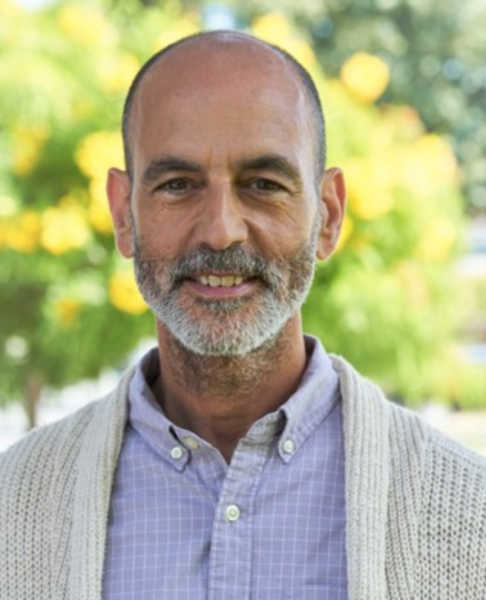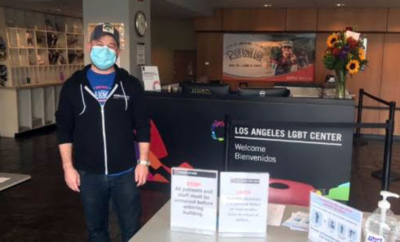 The most precious thing in life is its uncertainty -- yoshida Kenko
The most precious thing in life is its uncertainty -- yoshida Kenko
#goweho
Building Resilience in Face of COVID-19 Uncertainty
Rebooting Through Optimism, Facing Fear, Social Support
Our species has done an amazing job surviving multiple pandemics, ice ages and natural disasters, not to mention our own self-inflicted violence, over the last several million years.
It’s in our DNA to know how to make it through.

Dr. Silverstein
As we move into the next phase of the COVID-19 pandemic, how do we tap into this collective resilience?
Concerns about safety continue to loom large as much remains unanswered about the health risks of reopening businesses and the impact of greater social interaction.
Uncertainty during the health crisis has proven to be one of the greatest and most stressful challenges. The mounting losses due to loss of health, loved ones, livelihood, and social connection have left individuals, families and communities reeling.
Depression, Stress Disorders Magnified by COVID
For those of us already vulnerable from underlying mental health conditions such as depression, post-traumatic stress disorder, or addiction, the additional stressors posed by COVID-19 risks have been particularly challenging. Oppression stress, such as coping with racism, homo/bi/transphobia, HIV stigma, disability, ageism, poverty and homelessness also become magnified and that much more unbearable.
When stress levels overcome our capacity to cope, mental health tends to buckle. In this state, harshness toward self and others, panic, insomnia, suicidality, and addiction relapse are more easily triggered.
This period of uncertainty and transition also brings with it the opportunity to slow down, mobilize self and other care at a new level, and to discover and build greater levels of resilience. Learning to become more resilient now will pay dividends well after the health crisis passes!
With resilience we’re looking to jump start or reboot–or just stretch a little bit further in a way that actually feels good, restorative, and forward leaning.
The American Psychological Association defines resilience as “the process of adapting well in the face of adversity, trauma, tragedy, threats, or even significant sources of threat.” Resilience has been shown to help reduce traumatic stress and the incidence of post-traumatic disorders.
It is also being studied for its capacity to bolster the immune system.
Research has shown several common resilience factors including (1) realistic optimism; (2) facing fear; (3) social support; (4) spiritual practice; (5) physical and brain fitness; and (6) finding meaning and purpose.
We have the ability to build up our resilience. While all of these factors have protective value, today I’ll detail the first three.
Realistic optimism:
The brain/mind under stress tends to go negative. This is a normal survival response. Walking around on the street or having to interact with others in closer settings–such as a grocery store–inevitably raises worry about health and safety. Optimism here means making choices that move toward the best possible outcome under the circumstances.
“I know to cover my face and keep my distance even from loved ones right now. I’m optimistic that this knowledge, based on scientific consensus, will help keep me and others safe.”
That is realistic optimism.
• Key takeaway: Identify and appreciate strengths within reach (e.g. knowledge about safe practices and the commitment to use them)
Facing Fear
Being afraid of a potentially lethal virus is healthy fear. Facing this fear, including the uncertainty of the full impact of the pandemic, builds resilience by alerting us to the environmental conditions that are present and how best to respond in the moment.
We see the challenge of this getting played out in the government as confusion reigns about the best way to face collective fears about COVID-19. President Trump prefers to broadcast that “everything is under control,” while his top health official, Dr. Anthony Fauci, has to date suggested the contrary. Dr. Fauci’s sharing of the data can help to foster resilience by allowing us to face the fear together about significant hurdles to reversing the course of the epidemic. Trump may be speaking for the wish that many harbor, that we can start to relax restrictions at this point, but he may be impeding resilience by attempting to avoid fear. That said, there may be times to avoid facing fear when doing so, especially alone, would be too overwhelming; then it’s better to wait until social support is available.
• Key takeaway: Facing fear tends to be more protective than avoiding fear.
Social support
Positive social connections, whether with friends, family, neighbors, support groups, therapists, and health care providers, stimulates a neurobiological chain reaction that can be calming, energizing, and uplifting. Having someone to share your fears with, who can reflect your strengths, and help build up a sense of safety in the present moment, can interrupt the momentum of frightening thoughts and help provide needed perspective. Social support also includes finding ways to chill out, have fun, learn, meditate or pray together. Physical distancing has confounded access to in-person social support, especially for those who live alone. However, internet and phone communication is an effective way of seeking out social support. While an electronic connection cannot replace the live presence of another, research has shown that meaningful and measurable benefits are seen through long distance communication.
• Key takeaway: Safely connecting with others for social support reduces stress and increases wellbeing.
How have you been coping with current public health crisis? What have been some of the coping strategies and resources that you have found most helpful? What do your dreams have to say about all this? I welcome hearing from you.
Useful links:
West Hollywood – Mental Health Resources
CDC – Managing Stress-Anxiety
For more about Dr. Silverstein and his practice check out his website here.








You must be logged in to post a comment Login